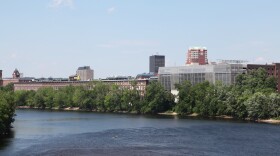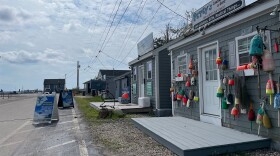The state is setting new limits on eating fish from Squam Lake after some species were found to contain high levels of a likely carcinogen.
The Department of Environmental Services says it found PCBs in small-mouth bass and yellow perch from the lake.
Past research had shown high levels of the toxic industrial chemicals in loon eggs and sediment from the lake.
Now, DES says people should limit consumption of these fish -- even further than they would under normal state guidelines.
For perch, the state recommends one meal or less per month. For bass and other species found in the lake, such as salmon and trout, it's three meals per year.
The limits are even tighter for kids under 7, and women who could get pregnant. Full details on the restrictions can be found here.
The state is waiting on other test results for Squam Lake to see if fish there also contain PFAS chemicals.
Open-water fishing season begins soon on New Hampshire's lakes, as winter ice retreats.









